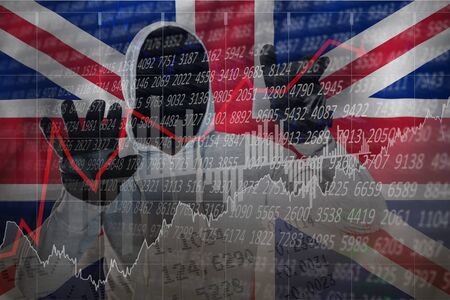Overview of Global Geopolitical Risks
In recent years, the global landscape has been shaped by a complex array of geopolitical risks that have far-reaching consequences for economies and financial markets across the world. Issues such as escalating tensions between major powers, ongoing regional conflicts, trade disputes, cyber security threats, and shifting alliances are increasingly influencing political decisions and economic outcomes. These contemporary challenges are not isolated; rather, they are deeply interconnected with the globalised nature of trade, investment, and communication. As governments and institutions respond to these evolving threats, the knock-on effects are felt not only in policy but also in market confidence and investor behaviour. Understanding these risks and their broader context is essential for grasping how they ripple through global systems—affecting everything from commodity prices to currency stability. For the UK, a nation with deep historical ties to international trade and finance, staying attuned to these developments is critical for anticipating market volatility and safeguarding economic resilience.
2. Direct Exposure of the UK Economy
The United Kingdoms economic structure and its global trade relationships have a profound influence on how the nation is affected by geopolitical risks. As a highly open economy, the UK relies heavily on international trade, foreign investment, and its role as a global financial hub. This exposure brings both vulnerabilities and strategic advantages in times of global uncertainty.
Trade Relationships: Strengths and Weaknesses
The UKs diverse trade portfolio means it is less dependent on any single partner, but it also means that disruptions in multiple regions can have compounding effects. The UKs main trading partners include the EU, the United States, China, and Commonwealth countries. Geopolitical tensions—such as sanctions, trade wars, or regional conflicts—can alter supply chains or reduce market access, directly impacting UK businesses and consumers.
| Trading Partner | Exports (%) | Imports (%) | Key Risks |
|---|---|---|---|
| European Union | 42% | 50% | Post-Brexit regulations, Eurozone instability |
| United States | 13% | 10% | US-China tensions, regulatory divergence |
| China | 5% | 9% | Supply chain disruption, technology bans |
| Commonwealth Nations | 9% | 7% | Commodity price volatility, political instability |
The City of London: Financial Sector Vulnerabilities and Opportunities
The City remains one of the world’s premier financial centres. Its global reach makes it sensitive to shifts in international capital flows and sanctions regimes. For example, escalations in Eastern Europe or Asia can trigger sharp movements in currency markets or impact foreign direct investment into the UK. Conversely, London’s established legal system and regulatory standards can attract safe-haven investments during periods of global stress.
Sectors Most at Risk from Geopolitical Instability
| Sector | Exposure Level | Main Concerns |
|---|---|---|
| Financial Services | High | Sanctions, currency volatility, investor confidence shocks |
| Aerospace & Defence | Medium-High | Export controls, supply chain disruptions from conflict zones |
| Agriculture & Food Imports | Medium | Tariffs, commodity price shocks due to global shortages or blockades |
| Energy (Oil & Gas) | High | Price swings from regional conflicts or OPEC decisions affecting supply routes/costs |
| Manufacturing (Automotive/Chemicals) | Medium-High | Sourcing disruptions, increased production costs from tariffs or embargoes |
A Double-Edged Sword: Adaptability versus Dependence
The UK’s exposure to geopolitical risk is double-edged: while its openness and international ties make it vulnerable to external shocks, they also provide flexibility to pivot towards new markets or partners when needed. Strategic government initiatives—such as pursuing diversified trade agreements post-Brexit—are designed to enhance resilience against these global uncertainties.
This dynamic interplay between vulnerability and adaptability defines much of the current debate around Britain’s place in an increasingly unpredictable world economy.

3. Impact on UK Financial Markets
The intricate web of global geopolitical risks can exert considerable pressure on the UK’s financial markets, with the effects often felt most acutely on the London Stock Exchange (LSE), currency valuations, and cross-border investment activity.
London Stock Exchange Volatility
Periods of heightened geopolitical tension, such as trade disputes or military conflicts, frequently trigger volatility in the LSE. Investors tend to react swiftly to news from abroad, leading to sharp fluctuations in share prices—particularly among FTSE-listed companies with significant overseas exposure. Defensive sectors like utilities and consumer staples may witness increased demand during periods of uncertainty, while cyclical sectors, such as banking and energy, can become more vulnerable to sell-offs.
Pound Sterling Movements
Currency markets are highly sensitive to geopolitical developments, and the pound sterling is no exception. Instances such as Brexit or broader EU instability have demonstrated how sterling can come under pressure as investors seek perceived safe-haven currencies like the US dollar or Swiss franc. Conversely, signs of diplomatic progress or stabilising international relations may lend support to the pound by boosting investor confidence in the UK’s economic prospects.
Investment Flows: Inward and Outward Dynamics
Geopolitical uncertainties can significantly influence both inward investment into the UK and outbound capital flows. Heightened global risks often result in overseas investors adopting a more cautious stance towards UK assets, impacting everything from commercial property transactions to direct investment in British firms. Simultaneously, domestic investors might diversify their portfolios by increasing allocations to international markets deemed less exposed to current tensions. This dynamic interplay affects liquidity levels and can alter long-term trends within the City of London’s financial ecosystem.
Navigating Uncertainty
For market participants and policymakers alike, understanding these shifting patterns is crucial for risk management and strategic planning. By monitoring developments on the global stage and their ripple effects across British financial instruments, stakeholders can better anticipate challenges and identify opportunities amid ongoing geopolitical flux.
4. Sector-Specific Implications
Geopolitical risks manifest differently across various sectors of the UK economy, with certain industries more exposed to global instability than others. Understanding these sector-specific implications is vital for businesses and investors seeking to navigate uncertainty and build resilience. Below, we highlight how key UK sectors are being affected by ongoing geopolitical developments.
Energy
The UKs energy sector is particularly sensitive to global tensions, especially those impacting oil and gas supply routes and international trade relationships. Volatility in energy prices due to conflicts or sanctions can lead to increased operational costs for domestic providers and higher bills for consumers. The push towards renewable energy sources is also influenced by geopolitics, as supply chains for critical materials (such as rare earth metals) are often concentrated in politically unstable regions.
Financial Services
As a leading global financial hub, London faces unique risks from shifting international alliances and regulatory changes stemming from geopolitical disputes. Uncertainty around sanctions, market access, and cross-border transactions can affect liquidity, investment flows, and the confidence of global clients. Additionally, cyber threats linked to state actors pose ongoing challenges for financial institutions.
Manufacturing
The manufacturing sector is highly exposed to disruptions in global supply chains caused by geopolitical strife. Tariffs, export controls, and logistical bottlenecks can all increase costs and delay production. For UK manufacturers reliant on imported components or international markets, such risks may prompt a reevaluation of sourcing strategies or investment in domestic capabilities.
Technology
Technology firms in the UK are impacted by both direct restrictions (such as bans on collaboration with certain countries) and indirect pressures (like talent shortages driven by visa policy changes). Intellectual property protection, data sovereignty, and digital infrastructure security have become focal points amid rising geopolitical tensions. There is growing pressure on tech companies to diversify suppliers and invest in robust risk management frameworks.
Summary Table: Geopolitical Risks Across Core UK Sectors
| Sector | Key Geopolitical Risks | Main Impacts |
|---|---|---|
| Energy | Supply chain disruption, price volatility, sanctions | Rising costs, supply insecurity, renewables transition challenges |
| Financial Services | Sanctions, market access restrictions, cyber threats | Reduced investment flows, compliance burdens, security concerns |
| Manufacturing | Trade barriers, supply chain delays, export controls | Production delays, increased costs, strategic reshoring |
| Technology | Collaboration bans, IP risks, talent mobility issues | Innovation slowdown, skills shortages, regulatory complexity |
Conclusion
The diverse impacts of global geopolitical risks across UK sectors underline the importance of tailored risk assessments and sector-specific strategies. By recognising these vulnerabilities early and adapting accordingly, UK organisations can better position themselves for future stability amidst ongoing uncertainty.
5. Regulatory and Policy Responses
In the face of mounting global geopolitical risks, UK regulators and policymakers have been under increasing pressure to adapt their strategies in order to preserve financial stability and market integrity. The Bank of England, alongside the Financial Conduct Authority (FCA) and HM Treasury, has taken a proactive approach to monitoring systemic vulnerabilities that may arise from international tensions, such as sanctions regimes, trade disputes, or disruptions in global supply chains.
One crucial area of focus has been stress-testing for banks and other financial institutions. The Bank of England regularly updates its scenario analyses to account for potential shocks stemming from geopolitical developments—including energy price volatility, cyber threats originating from hostile state actors, or sudden capital flows triggered by international uncertainty. These measures are designed to ensure that UK financial institutions maintain robust capital buffers and contingency plans.
On the policy side, HM Treasury has worked closely with European and international partners to harmonise responses where possible, particularly regarding sanctions enforcement and anti-money laundering efforts. Following Brexit, there has been renewed attention on the agility of UK regulation—striking a balance between global alignment and regulatory autonomy. This flexibility enables swift action if new geopolitical risks emerge that threaten the UK’s economic interests or financial system.
The FCA has also stepped up its supervision of market conduct during periods of heightened volatility. Enhanced scrutiny is placed on market abuse risks, such as insider trading linked to sensitive geopolitical information or market manipulation exploiting uncertainty. Firms are expected to bolster their compliance frameworks accordingly, ensuring transparency and fair dealing even under stressful conditions.
Ultimately, the evolving response from UK regulators reflects a commitment to resilience. By continuously updating risk assessments, fostering cross-border cooperation, and demanding high standards from market participants, policymakers aim to shield the UK markets from external shocks—while maintaining London’s reputation as a trusted global financial centre.
6. Outlook and Strategic Considerations
Looking ahead, the interplay between global geopolitical risks and UK markets is set to remain a defining feature for investors, businesses, and policymakers. The landscape is inherently unpredictable—shaped by shifting alliances, economic sanctions, regulatory changes, and unexpected events. As such, the ability to assess emerging risks and identify fresh opportunities will be vital for market participants aiming to achieve resilience.
Building Resilience in Uncertain Times
Resilience begins with robust risk management frameworks. UK-based organisations must regularly review their exposure to geopolitical hotspots, scrutinise supply chain vulnerabilities, and stress-test their portfolios against a range of adverse scenarios. Diversification remains a cornerstone strategy—spreading investments across sectors, geographies, and asset classes can help cushion shocks from isolated events. Furthermore, scenario planning and crisis simulations should become routine practice for firms seeking to stay one step ahead.
Opportunities Amidst Volatility
While heightened geopolitical risks often spell caution, they can also create windows of opportunity for those prepared to act decisively. Market dislocations may present undervalued assets or prompt innovation in sectors such as defence technology, cybersecurity, or renewable energy—areas where the UK has established strengths. Keeping an agile approach and being open to recalibrating strategies will serve market participants well.
Strategic Collaboration & Informed Decision-Making
Collaboration across industry lines—whether through public-private partnerships or cross-border alliances—can amplify collective resilience. Sharing intelligence and best practices allows for quicker adaptation to new threats. Meanwhile, keeping abreast of government policy shifts and engaging with regulatory developments ensures that businesses are not caught off guard by sudden changes in the operating environment.
Ultimately, the future for UK markets amidst global geopolitical turbulence hinges on proactive assessment and strategic flexibility. By embedding resilience at every level—from boardroom decisions to operational processes—market participants will be better positioned to navigate uncertainties and seize new growth avenues as they arise.

